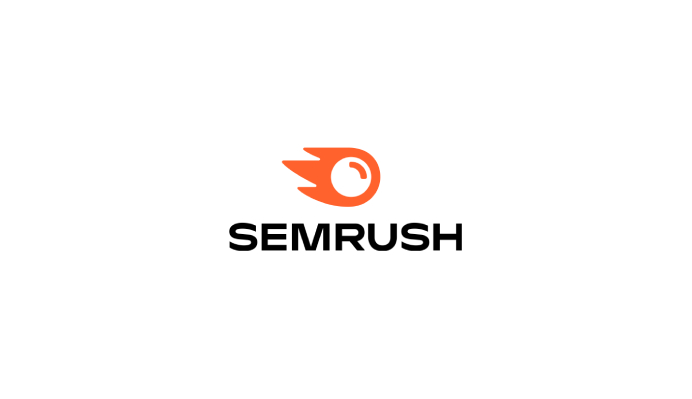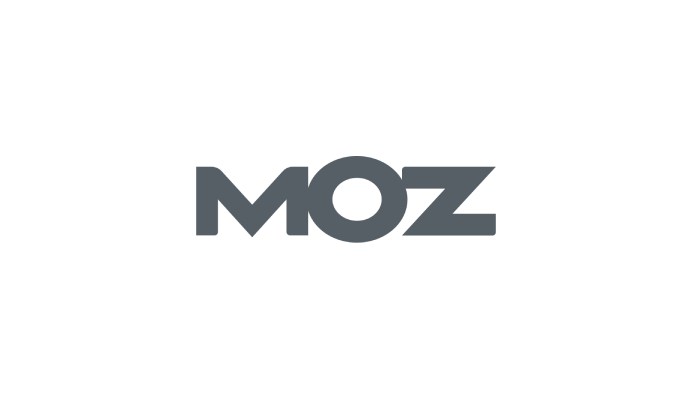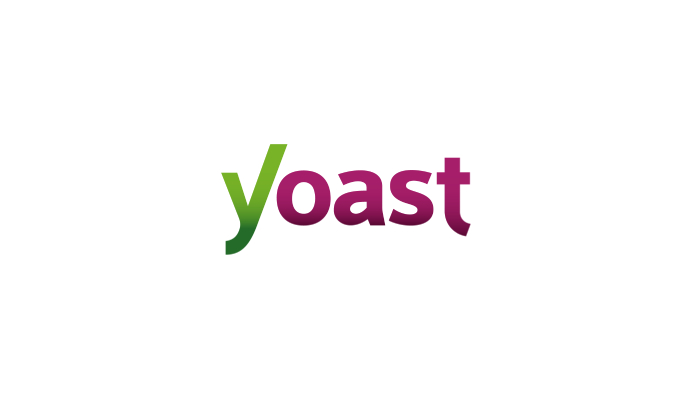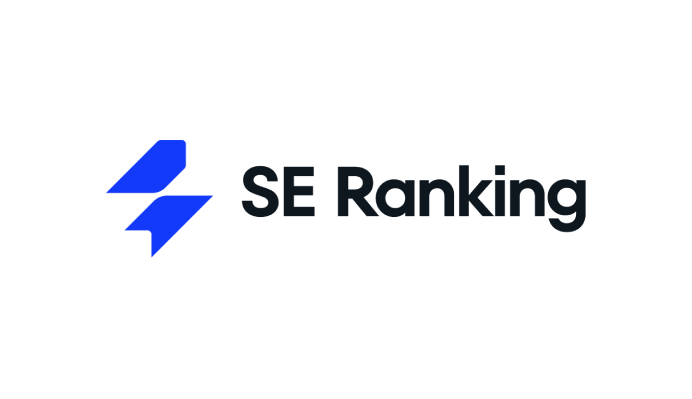One of the crucial aspects for any such eCommerce business is SEO, which helps attract qualified organic traffic to the online store. These tools also help you to receive deserving insight and data that will guide you in optimizing the site as well as content in search engines with a higher rank and visibility. This increases the probability that potential consumers will find out about you by searching for products and services which you provide.
Here are 10 powerful eCommerce SEO tools to help take your online store’s SEO to the next level:
1. SEMrush

One of the greatest all-in-one packages for digital marketing that may help you maximize your online visibility is Semrush. It has smoothly included strong SEO features such as keyword research, site audits, rank monitoring and competitor analysis into one product.
With its vast proprietary database and extensive feature set, Semrush is one of the most robust SEO suites available today. It provides actionable data to optimize your online store’s content and pages around high-potential keywords that customers are actually searching for.
Semrush enables granular keyword research and analysis to uncover valuable search terms related to your products or services. You can analyze monthly search volumes, keyword difficulty scores, suggested bids and other useful metrics to inform your targeting strategy. This data helps ensure you optimize pages around keywords with sufficient search volume and competitiveness to drive relevant organic traffic.
The platform also provides detailed technical SEO audits to crawl your entire online store and surface issues impacting performance and visibility. For example, it may identify duplicate content, thin or missing meta descriptions, too many 404 errors, slow page speed and other problems hindering your site. The audits give an overall SEO score along with specific, actionable suggestions to fix identified issues and increase your site’s score.
Semrush allows monitoring keyword rankings across search engines to gauge progress and quickly see which pages need more optimization attention to reach top positions. Its backlink analysis reveals potential link building assets and opportunities based on a competitor’s existing backlink profile and root domains. You can also audit your own backlinks to assess quality and remove toxic links.
Robust competitive intelligence is another strong suit of Semrush. You can benchmark your online store against key competitors on metrics like estimated traffic, keyword rankings, backlinks, social media followers, top-performing pages and more. These insights help you identify your strengths as well as areas needing improvement.
With its combination of AI-powered data, extensive analytics and an intuitive interface, Semrush is suitable for small businesses just getting started with SEO to large enterprises managing complex eCommerce optimization initiatives. It’s an all-in-one platform that can elevate your overall SEO strategy.
2. Ahrefs

Ahrefs is another highly prominent SEO suite, best known for its comprehensive backlink research capabilities. However, it also provides a complete set of eCommerce SEO tools to benefit your Website.
The Keyword Explorer feature equips you with exhaustive keyword data such as monthly search volumes, cost-per-click metrics, keyword difficulty scores, search trends and seasonality patterns. These insights help you identify the most profitable, high-potential keywords to target based on search behaviour and difficulty. You can then optimize pages around these terms.
Granular backlink analysis is a key strength of Ahrefs. It reveals direct link building opportunities by analyzing the backlink profile of competitors – number of referring domains, anchor text, domain authority and other metrics. You can also audit your own existing backlinks to assess quality and double down on tactics driving the best links.
Ahrefs’ Site Audit feature crawls your site to surface technical problems that hamper SEO and user experience, like broken pages and links, thin or missing metadata, accessibility issues and more. It provides specific recommendations for fixing identified problems.
The platform also helps generate content ideas based on currently trending topics and keywords in your eCommerce niche. You can also track keyword rankings across search engines to monitor your progress over time.
While best known as a backlink analysis tool, Ahrefs provides robust end-to-end SEO capabilities, making it suitable for comprehensive optimization. It’s widely used among SEO professionals and complements other tools as part of a holistic strategy.
3. Moz Pro

Moz Pro is one of the most complete SEO toolkits available, making it quite valuable for eCommerce SEO. Its extensive range of features gives you the information you need to enhance your online store for increased visibility.
Robust keyword research tools furnish actionable data like search volume, keyword difficulty, suggested bids, ranking gaps between you and competitors and more. These insights help you find the most profitable keywords to target.
Moz’s site audit feature analyzes on-page and technical factors to identify issues negatively impacting organic rankings – like thin content, broken links, site speed and more. It provides an overall website health score along with specific recommendations to address problems.
Rank tracking helps monitor your keyword positions across search engines. Link analysis tools equip you with data to find impactful backlink opportunities and manage existing links effectively.
Moz also offers its own metrics like Domain Authority and Page Authority to benchmark your overall website and important pages against competitors. Monitoring DA and PA provides a quantifiable way to track your SEO progress.
Other notable features include browser extensions for on-the-fly page analysis, API access, white-label reporting to communicate insights and more. The breadth of capabilities makes Moz Pro suitable for managing complex enterprise SEO initiatives.
4. Yoast SEO

For WordPress-powered online stores, the Yoast SEO plugin is an invaluable optimization tool right within your CMS. By letting you customize page titles and meta descriptions for every unique product page, category, blog post, and more, it makes precise on-page SEO easier. This directly improves click-through rates and rankings potential.
Yoast’s content analysis helps insert keywords naturally and provides real-time feedback on elements like word count, density and use of related terms so you can optimize copy effectively. It also surfaces and helps fix technical issues like broken links and duplicate content.
Integration with Google Search Console gives additional insight into search performance. Through its ability to serve optimized, SEO-friendly content across your online store, Yoast SEO sets the stage for better organic results.
The essential SEO tools give you the precious data and insights that help your eCommerce site gain visibility and traffic. As for industry-leading all-in-one suites such as Semrush, Ahrefs and Moz, their analytics power can satisfy the most sophisticated enterprise requirements. While Yoast SEO is used to optimize WordPress stores, Google’s free tools supplement data. You can develop a data-driven SEO strategy customized to the needs of your online store’s growth with all-around capabilities.
5. Google Keyword Planner

While robust paid tools like SEMrush and Ahrefs provide extensive keyword data, Google’s free Keyword Planner is also an important part of your research toolkit. It offers valuable first-party Google data to complement other tools.
A key benefit of Keyword Planner is getting search volume and competition insights directly from Google for the high-priority keywords related to your eCommerce business. This can help guide your content and optimization efforts around terms that have sufficient search interest.
The tool enables discovering long-tail keyword variants around your core terms that may have lower competition but still attract very targeted searchers. Targeting relevant long-tail key phrases can help drive traffic to specific products.
You can also view keyword search trends over time in Keyword Planner. This is useful for planning content around seasonal buying keywords or aligning your keywords to purchasing cycles.
Before exporting the results into premium tools like SEMrush for a more thorough examination, the tool offers a simple method of gathering initial seed keywords. And it seamlessly integrates with Google Ads for campaign planning.
While Google Keyword Planner has more limited capabilities than paid solutions, it still equips you with helpful data directly from Google itself – an invaluable supplement to inform your targeting and SEO strategies.
6. Screaming Frog SEO Spider

Screaming Frog SEO Spider is another free tool that complements analytics software by helping diagnose and fix technical issues that hamper SEO. As a website crawler, it provides insights into:
- Indexing issues such as pages blocked by robots.txt which prevent search bots from crawling them. Fixing this can allow pages to be indexed.
- Crawl errors and broken links create frustrating experiences for users and bots alike. Identifying and correcting broken pages and links helps search bots efficiently crawl your site.
- Duplicate page content across your online store. Too much duplication can confuse search engines in determining relevance and authority. Minimizing overly repetitive content improves SEO.
- Thin pages with little content or missing page meta descriptions. Optimizing these elements helps pages get crawled and appear prominently in search results.
- Image, scripts and other assets that have optimization issues like missing alt text, broken links and more. Fixing these helps search bots understand your content.
- Security issues like invalid SSL certificates or mixed content warnings. Resolving these critical problems improves user trust and satisfaction.
- Screaming Frog presents easy-to-understand visual site maps that make it simple to quickly spot technical problems hampering SEO. You can then fix them directly using its bulk editing capabilities or export issues to other platforms.
Regularly crawling your eCommerce site provides ongoing monitoring to catch and fix technical SEO bugs before they accumulate and cause lasting damage. Screaming Frog fills this crucial diagnosis role.
7. KWFinder

While most keyword research tools focus on high-volume head terms, long-tail keywords still drive significant targeted search traffic. This is where KWFinder comes in handy.
It rapidly generates numerous long-tail keyword ideas related to your seed keywords, which helps uncover specific phrases with lower competition. Long-tail keywords also attract more focused searchers closer to the bottom of the funnel.
The KWFinder offers key metrics for long-tail like monthly searches, cost-per-click estimations and information about levels of competition. One way to drive laser-targeted traffic in a cost-effective manner is by targeting low-competition long-tails.
This tool also clusters the keywords by sense and relevance, allowing you to choose appropriate semantic subsets corresponding to your products or plotting topics.
Monitoring keyword rankings on KWFinder over a period helps you measure the impact of your targeting and optimization processes.
It also lets you export keywords to CSV or Excel for deeper analysis in other systems and integrates your targeting process management.
KWFinder proves to be a great addition for discovering keywords related to purchasing around specific products, categories or content topics that may provide long-tail variations.
Producing engaging and top-quality content that appeals to your audience is a key aspect of earning trust, backlinks and engagement signals. This is where BuzzSumo’s content research features become useful.
By analyzing the top-performing content that competitors or influencers have in your eCommerce space, you can see what topics, formats, and angles generate links and social shares within any niche. You can build assets aligned with what is effective.
When you research the specific topics and content formats your target audience consumes, it enables creating link worthy content that matches their interests. This content acquires backlinks and referrals through its placement on influential sites or as it gets shared across social networks.
8. BuzzSumo

To rank well, you need content that resonates with your target audience – something BuzzSumo helps with.
BuzzSumo lets you:
- Analyze what content performs best for competitors and influencers in your space to get content ideas that attract links and social shares.
- Research which topics and formats your audience actively engages with to create link-worthy assets.
- Discover influencers and opportunities to get your content featured on authority sites, amplifying its reach.
- Monitor engagement with your own content to double down on what works.
These insights help you craft shareable content that earns links, referrals and social amplification – all signals search engines look for.
BuzzSumo content research complements SEO tools to further boost your online store’s visibility.
9. Ubersuggest

Ubersuggest by Neil Patel is a free eCommerce SEO Tool for businesses on a budget. Key features:
- Keyword research identifies the volume, CPC and difficulty of seed keywords via Google Autocomplete. It helps find low-hanging long tails.
- Reverse ASIN lookup provides keyword ideas based on Amazon product/category pages.
- Domain Authority (DA) and the quantity of referring domains going to a website are examined using backlink research. Gives link-building tips.
- Site audit checks page speed, HTTPS, and meta tags and highlights issues impacting organic visibility.
- Competitor tracking analyzes rivals’ organic traffic, top pages and backlinks.
- Local SEO analyzes Google Business Profile and maps rankings.
Though not as powerful as paid suites, Ubersuggest provides a handy set of free SEO tools for small eCommerce sites just starting out with optimization.
10. Google Search Console

Registering your online store with Google Search Console gives you insights directly from the source – Google itself.
Key reports and data provided:
- Which keywords do your pages rank for, and how do positions change over time? This helps you double down on optimizing and promoting the content that is already working to drive organic traffic.
- How many clicks and impressions do your pages get in Google Search? This gives you data on search interest and performance for your important pages.
- Links, URLs, images and other assets Google can’t crawl or index properly. Fixing these crawl errors and invalid links helps maximize indexing.
- Manual penalties, algorithmic issues or other concerns flagged by Google. You can then resolve these problems to restore rankings and visibility.
- New links point to your site, which helps gauge the impact of your link-building efforts.
- Enhance your presence on Google Maps/Local listings by optimizing business info, images, services, etc. This can drive local foot traffic.
By connecting Search Console with Analytics, you can get a better picture of how your pages rank organically and what search terms ultimately drive visits and conversions.
11. SE Ranking

SE Ranking is a professional platform for SEO specialists, agencies, and businesses working in different niches, including eCommerce. It combines powerful SEO tools, AI-driven technologies, useful integrations, an intuitive interface, and extensive datasets you can rely on.
One of its top features is the Rank Tracker, which monitors your online store’s positions daily and provides tons of helpful metrics, allowing you to make informed business decisions.
Competitive analysis is another SE Ranking’s strong side. Its Competitive Research tool lets you analyze any domain, including its keywords, traffic, backlinks, ads, and much more. You can spy on your rivals and learn from them to boost your eCommerce SEO efforts. If you’re looking to expand your keyword list, SE Ranking’s Keyword Research Tool offers thousands of search terms along with their search volume, keyword difficulty, competition, and other metrics.
SE Ranking also features an advanced AI Results Tracker. With this solution, you can analyze AI Overviews for your target keywords, research competitors, review cached copies of SERPs containing AI-generated answers, and much more. SE Ranking further applies AI in its Content Editor. This tool includes an AI Writer that helps generate high-quality texts for your website that require minor polishing.
To ensure your online store is technically sound, use the Website Audit tool. It detects technical issues on your website, analyzes their severity, and provides tips on how to fix them. For comprehensive web page analysis, SE Ranking offers an On-Page SEO Checker. It’ll give you a list of fixes to make on a particular page to make it rank higher.
As for backlinks, SE Ranking’s Backlink Checker identifies links to any page or website and collects all the important metrics. You can use it to analyze your backlink profile and that of your competitors to identify link-building opportunities for your online store.
Overall, SE Ranking offers all the tools you may need in one place, supported by accurate data, powerful algorithms, and generous data limits in every subscription plan.
Conclusion
Boosting SEO for your e-commerce store is crucial to driving qualified organic traffic and sales. The right tools provide the data-driven insights you need for on-page optimization, keyword targeting, technical fixes, competitive research and more. Platforms like SEMrush, Ahrefs and Moz offer robust all-in-one SEO capabilities. For WordPress sites, Yoast SEO optimizes content on the fly. Google’s free tools provide additional keyword and performance data. BuzzSumo and Ubersuggest help strategize content marketing and links. With this well-rounded toolkit, you have the means to audit, monitor and enhance your online store’s SEO to maximize findability and conversions.
Acowebs are the developers of WooCommerce checkout field editor plugin which helps to manage the checkout page fields in your WooCommerce Store. WooCommerce checkout fields drag and drop form builder helps editing checkout fields easier. It can be used to modify or hide default woocommerce checkout fields.












 Login
Login
 Cart
Cart







